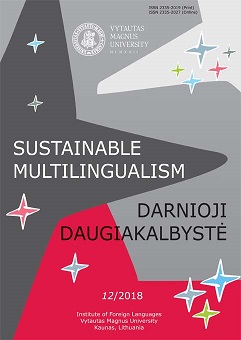Analysis of refugee students’ interest, attitudes and learning in social sciences lessons from the perspectives of teachers and students
Analysis of refugee students’ interest, attitudes and learning in social sciences lessons from the perspectives of teachers and students
Author(s): Mehmet AkpinarSubject(s): Foreign languages learning, Language acquisition, School education, Migration Studies, Sociology of Education
Published by: Vytauto Didžiojo Universitetas
Keywords: social sciences; teacher; refugee; student; Turkey;
Summary/Abstract: The aim of this study is to examine the interest, attitudes and learning of refugee students living in Turkey towards social sciences lessons from the perspectives of both teachers and students. This phenomenological study was carried out with 20 refugee students in 10 different public schools in Trabzon province, in the 2016–2017 spring term. In addition, 13 social sciences teachers working in these schools participated in the study. The participants were chosen via the purposeful sampling method of criterion sampling. An open-ended interview form was applied in the data collection phase, and the data were analysed through content analysis. The findings revealed that the social sciences teachers had problems in communicating with refugee students due to language barriers, and they were unable to apply individualized instruction with these students due to the limitations of the curriculum. It was further established that the refugee students had a particular difficulty in learning Turkish history and culture-related topics, because they were exposed to these subjects for the first time. On the other hand, it came to light that the students performed better when social sciences teachers taught their lessons using simpler terminology, assisted with visuals. As the results of the study highlight the fact that the social sciences curriculum is too intensive to allow for individualized instruction, it is suggested that additional studies should be carried out with refugee students; moreover, refugee students may be peer-educated with the help of other refugee students who can speak Turkish.
Journal: Darnioji daugiakalbystė
- Issue Year: 2018
- Issue No: 12
- Page Range: 130-151
- Page Count: 22
- Language: English

